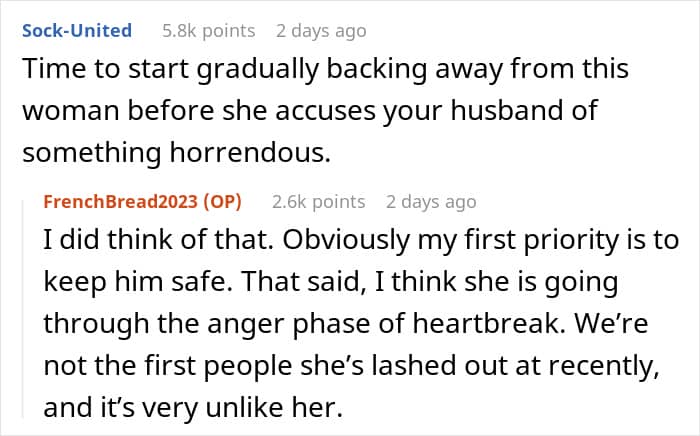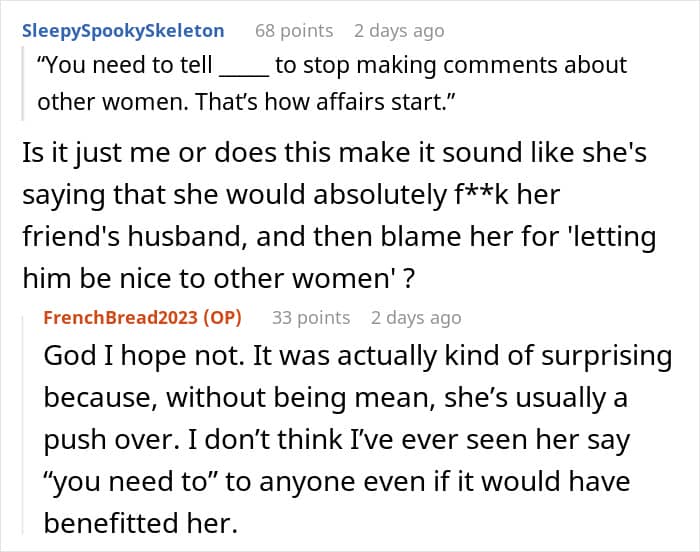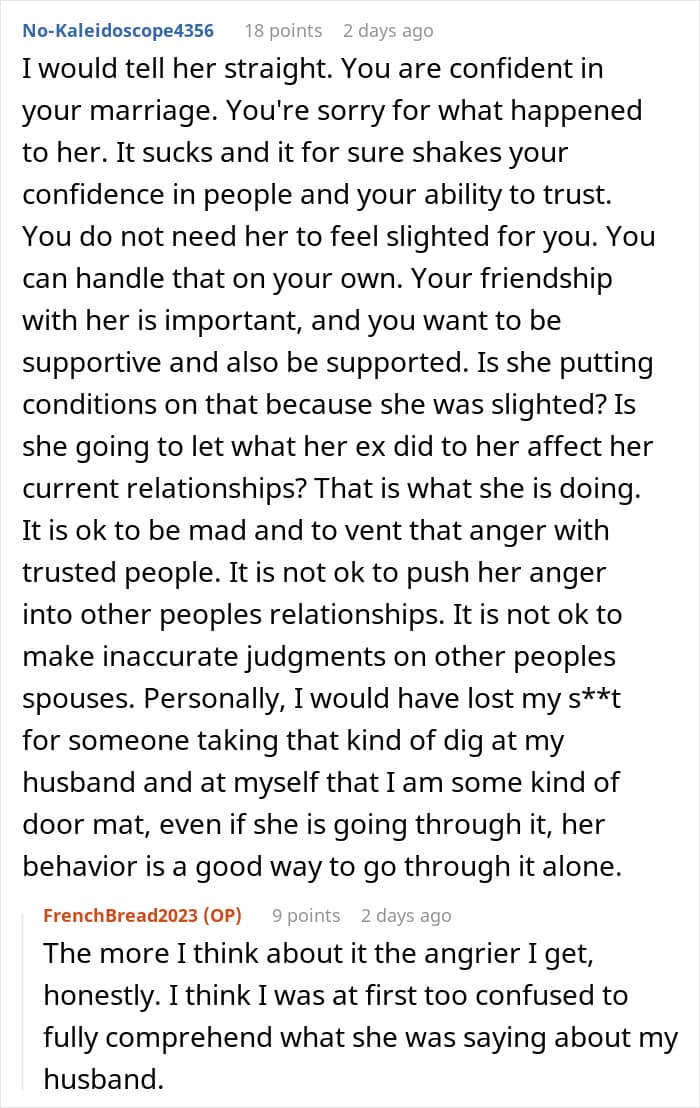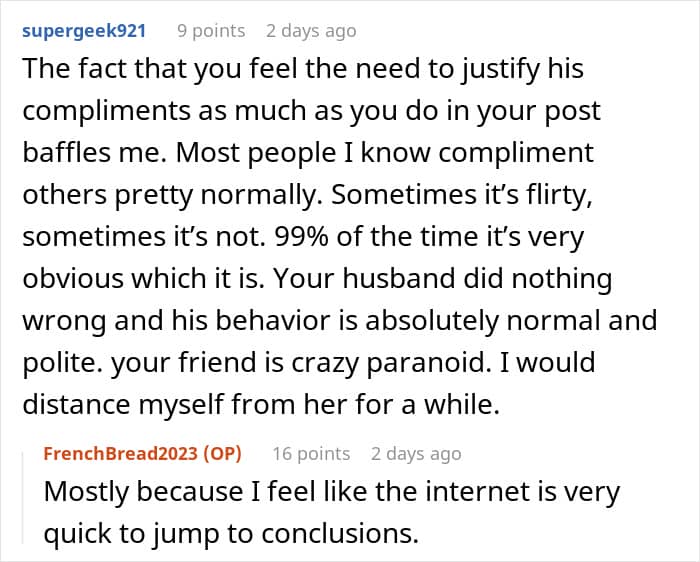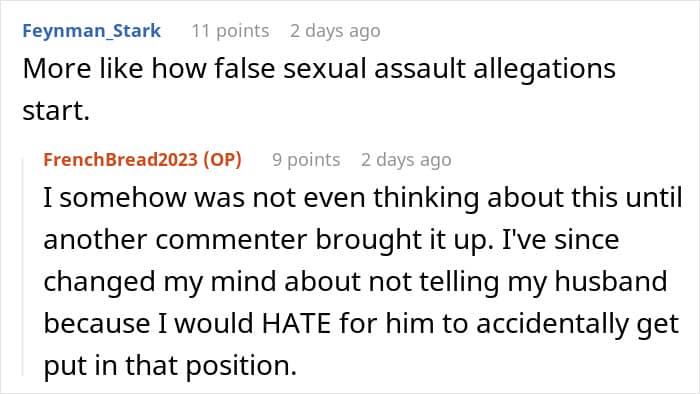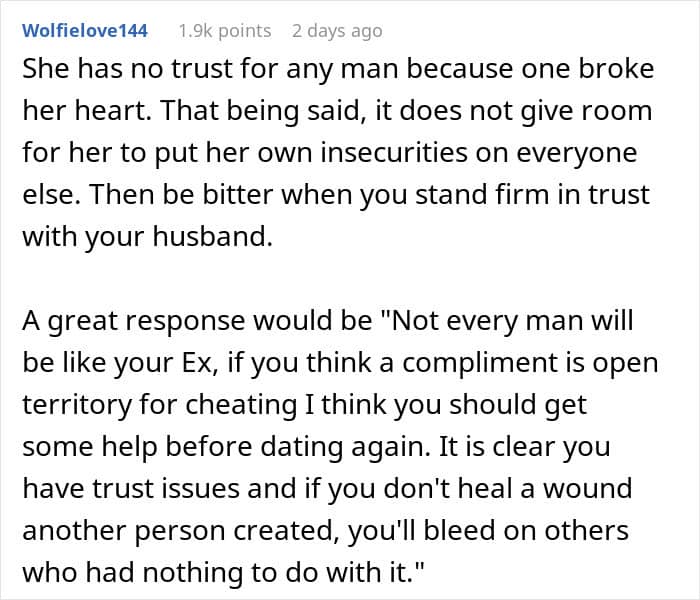Recently, a confused woman turned to the r/TrueOffMyChest subreddit to share a conflict she had with a good friend.
“A good friend of mine broke up with her boyfriend of 6 years after she discovered he was cheating. She has recently decided to get back into dating, but she wanted the first date to be a double-date for her own comfort,” the author explained.
She and her husband were first to arrive at a restaurant. And while they were waiting for their friend’s date, the husband, without thinking too much about it, complimented the friend.
Turned out that didn’t sit well with the friend at all, who took it as a red warning sign that their marriage is about to turn sour.
RELATED:
A woman is left mad at her friend’s husband for complimenting her, sees it as a telltale sign of an unstable marriage



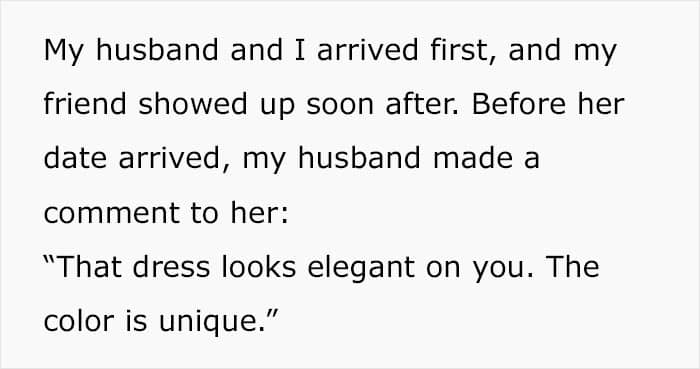
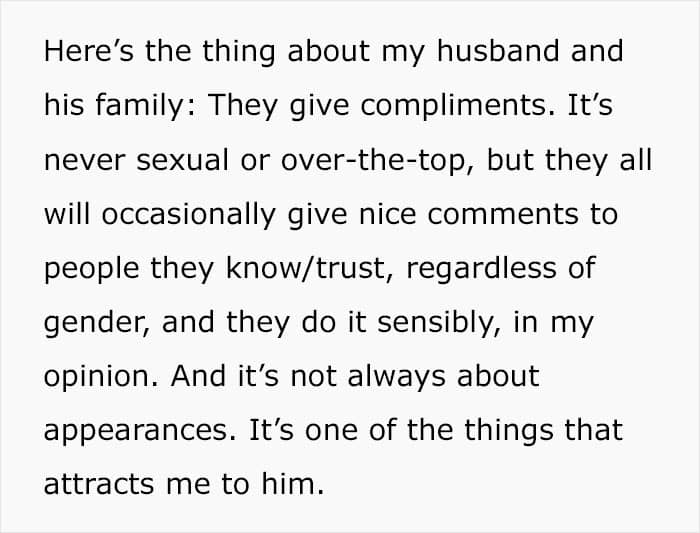
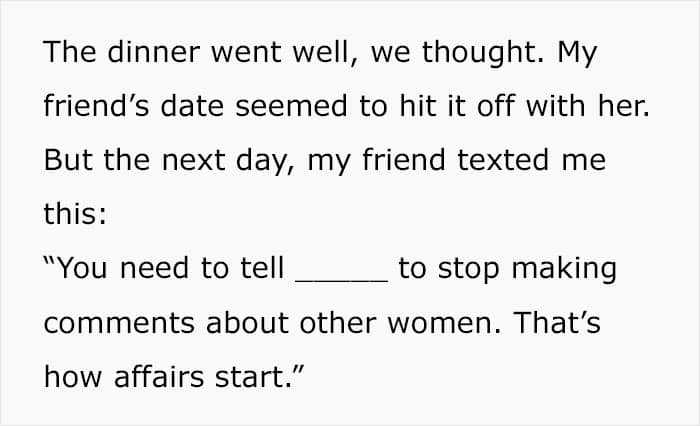
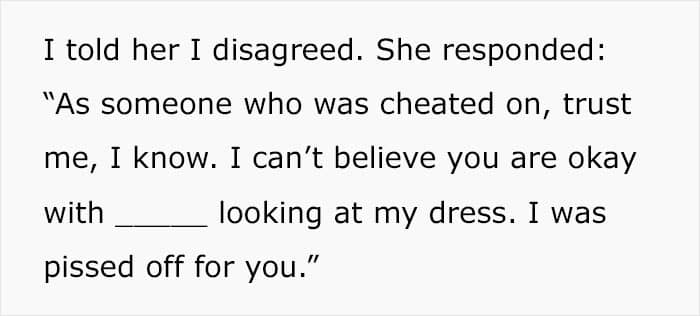
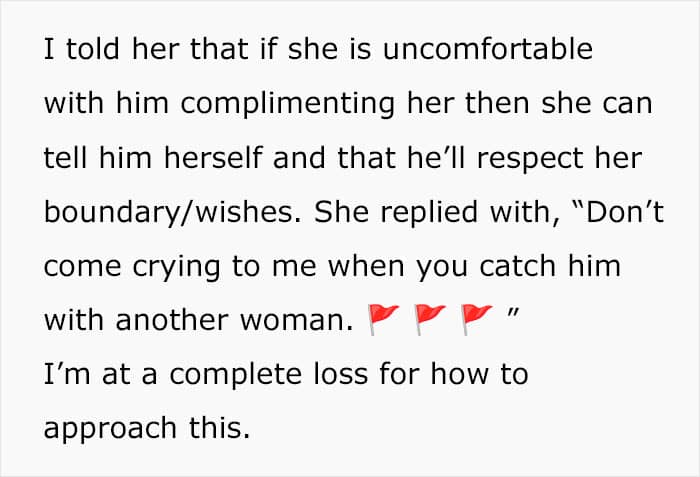

“Not all compliments are equally appropriate in every circumstance,” an expert says

We reached out to Laura Wasser, a family law expert and chief of divorce evolution at Divorce.com, to find out an expert’s take on this whole situation. Laura is a sought-after voice on TV and in print on women’s issues, the evolution of divorce, and entrepreneurship.
“It’s only natural that we enjoy receiving approval and admiration, as well as hearing kind words from time to time. But it only applies to specific situations and particular people,” Laura explained.
According to her, not all compliments are equally appropriate in every circumstance. “For example, compliments followed by direct flirting are typical behavior for two people seeking romantic involvement. But a similar communication format is not okay for someone currently married and, thus, can hardly be considered innocent.”
“If a married man offers a polite compliment in a casual, small-talk manner to someone other than his wife without any further implications, I wouldn’t worry about it”

“If a married man offers a polite compliment in a casual, small-talk manner to someone other than his wife without any further implications, I wouldn’t worry about it. Comments such as ‘nice haircut’ or ‘awesome dancing skills’ could be seen as friendly observations. When it comes from men, they might be trying to appear attentive and seek praise in return, nothing more,” Laura explained.
It’s important to note that compliments do not always aim to form romantic bonds, but context is crucial. “Frequent personal, even intimate, compliments are when you should start to be concerned. No one would spend time coming up with original praise unless there’s an attraction to the person.”
Laura added that compliments are not just words but also involve agendas, non-verbal signals, and social environment.
“Giving the right compliments at the right time is a sure way to make the recipient feel uplifted and grateful”

We also asked why some people tend to give compliments more often than others, and the family law expert explained that giving the right compliments at the right time is a sure way to make the recipient feel uplifted and grateful for the praise. “And when you’re on good terms with someone, you can try to get some benefits for yourself, your social life, or your career.”
She added: “that’s why some people, including skilled manipulators, might use compliments as a tool to achieve the desired effect or get what they want.”
However, if we talk about men in particular, Laura believes that they tend to compliment others more often than women. “What they might aim to achieve is demonstrating romantic interest, presenting themselves in a positive light, and getting on someone’s good side.”
The author later added this update about the whole situation
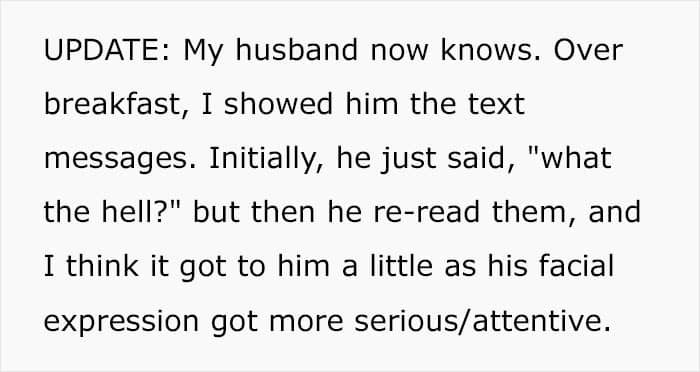


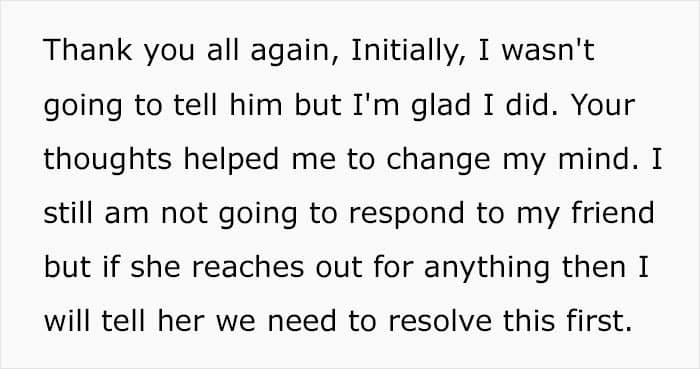
Image source: FrenchBread2023
“Receiving praise from others elicits discomfort when it conflicts with one’s existing belief system”
While some people adore being praised by others, whether it’s for their achievements or looks, others feel uncomfortable if someone compliments them. Guy Winch, Ph.D., a licensed psychologist, keynote speaker and author, argues that it comes down to the fact that our receptivity to compliments is a reflection of our self-esteem and deep feelings of self-worth.
“Compliments can make people with low self-esteem feel uncomfortable because they contradict their own self-views,” Winch argues in Psychology Today. According to him, “People actively seek to verify their own perceptions of themselves, whether those are positive or negative.”
“If we believe we’re truly undesirable, hearing compliments about how attractive we are will feel jarring and inauthentic. If we believe we’re unintelligent, someone lavishing us with praise about how smart we are will feel more like a taunt than a compliment. And if we’re convinced we’re incapable of success, receiving praise about how capable we are can feel like a set-up for future heartbreak and disappointment,” Winch explained.
And this is how people reacted

